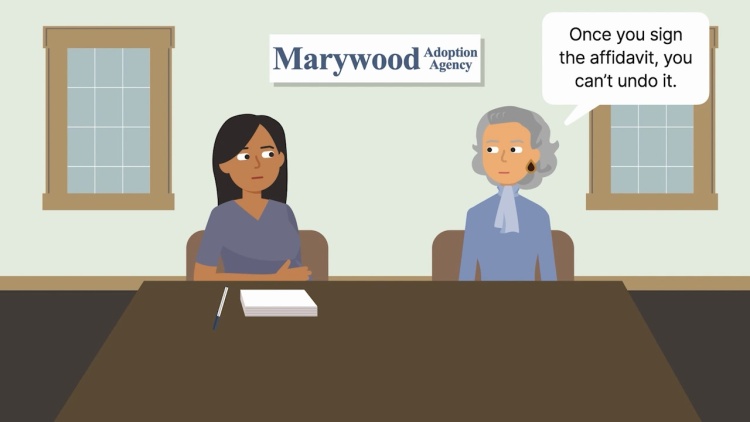Vela v. Marywood
Texas Court of Appeals
17 S.W.3d 750 (2000)
- Written by Robert Schefter, JD
Facts
Corina Vela (plaintiff) learned she was pregnant in September 1997 at age 19. In February 1998, Vela and her parents hired Marywood (defendant), a licensed child-placing agency, to provide counseling services and help place her child for adoption. Vela made clear to Marywood representative Aundra Moore that she wanted an open adoption, so she could select criteria for adoptive parents and be able to visit the child. Vela then selected an adoptive couple, who signed a “sharing plan” with Marywood, agreeing to allow visits between Vela and the child. Vela was not a party to this agreement, and Marywood admitted the agreement was unenforceable, but Marywood never discussed this with Vela. On April 24, 1998, Vela gave birth to a son and placed the child in foster care at Marywood on April 27. The next day, Vela and her parents met with Moore at Marywood and were presented with an “Affidavit of Voluntary Relinquishment of Parental Rights” for Vela to sign. Vela did not have a copy of the affidavit prior to April 28, and it was not mentioned to Vela until after she and Moore discussed the sharing plan. Vela was unsure whether she wanted to sign the affidavit, but signed it two hours later, while crying, after reassurance from Moore that the sharing plan would ensure her future visitation with the child. Vela was not informed that she could delay her decision or seek the opinion of an attorney prior to signing. Vela then sought to revoke the relinquishment of rights, but was told by Moore that it was irrevocable. The termination of rights was approved by the court before Vela could intervene. Vela appealed, arguing she did not knowingly and voluntarily sign the relinquishment affidavit.
Rule of Law
Issue
Holding and Reasoning (Yeakel, J.)
What to do next…
Here's why 899,000 law students have relied on our case briefs:
- Written by law professors and practitioners, not other law students. 47,000 briefs, keyed to 994 casebooks. Top-notch customer support.
- The right amount of information, includes the facts, issues, rule of law, holding and reasoning, and any concurrences and dissents.
- Access in your classes, works on your mobile and tablet. Massive library of related video lessons and high quality multiple-choice questions.
- Easy to use, uniform format for every case brief. Written in plain English, not in legalese. Our briefs summarize and simplify; they don’t just repeat the court’s language.





